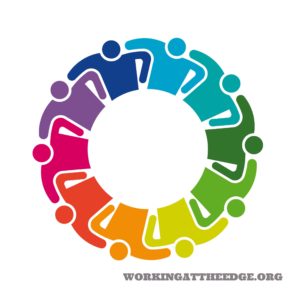 The following originally appeared on EdCirucuit as part of a roundtable discussion series including the voices of various FETC presenters – Part 2 and Part 3.
The following originally appeared on EdCirucuit as part of a roundtable discussion series including the voices of various FETC presenters – Part 2 and Part 3.
What does a student-centered learning environment look like?
My colleague, Lynn Fuin-Hetten, and I have been exploring this very question on the Shift Your Paradigm podcast, interviewing leaders and learners from learner-centered environments around the country. These environments come in many different shapes and sizes and should be distinguished from school-centered learning environments. Many of us educators speak about learner-centered education, but through the lens of the dominant school-centered paradigm: age-based cohorts, standardized curriculum and assessment, required credit hours and seat time, and the like.
This model will not serve our learners post-K-12 to become successful citizens and lifelong learners. As Education Reimagined suggests, our times call for a shift in the way we look at education – from school-centered to learner-centered. In a learner-centered learning environment, learning is competency-based; personalized, relevant and contextualized; socially-embedded; and open-walled. At the core of these elements is learner-agency. Learner-centered learning environments have some or all of these elements. Through our podcast project, we have found excellent learner-centered models in schools such as Iowa BIG, Portfolio School, Design39Campus and Pike Road Schools.
What is your #1 piece of advice for educators to improve their communication skills?
Empathy. It’s an overused term, but it is intertwined with effective communication skills because the most effective communication requires us to also listen. Communication isn’t just broadcasting; it’s a two-way conversation. We need to make sure what we are communicating is relevant to the intended audience, and we do this by using empathy.
As an example, I as a superintendent may need to communicate to our stakeholders the power of technology to support inquiry, helping our learners develop the lifelong skills they will need for a volatile, uncertain, complex and ambiguous future. I can communicate ideas through various means to various stakeholders. I might speak to the staff at the annual opening convocation, a staff meeting or a professional development. I might share teacher and student work on social media. I might meet with our Congressmen in Washington to advocate for E-Rate funding. The power of communication comes when I listen to the response to my communication and engage in a robust conversation to develop a deeper understanding and the next iteration of ideas.
What are the top two things leaders need to understand about professional development?
First, professional learning takes time, and one of the responsibilities of leadership is to provide the space and time for learning to happen. In Salisbury, Lynn and I have created a culture of learning where everyone is expected to be a learner, regardless of formal titles. If you are curious about learning something, and it connects to our Profile of a Graduate and Learning Beliefs, we will find a way to make that happen because we need our professionals to be models for our younger learners. The space for learning comes in many different forms: early release days, professional learning days, release time, cohort learning models, Summer Academy, conferences, Edcamps, book studies and passion projects.
Second, the most powerful professional learning reflects what we believe about learning. Just as we do not value one-size-fits-all learning in the classroom, we do not value it for our professional staff. Learning has to meet a just-in-time need for our teachers and leaders. It has to be relevant to context, in the moment. It must be social and both push-out into the community and push-in community resources.
Connect with Randy on Twitter, the TLTalkRadio podcast, and the Shift Your Paradigm podcast!
Get new content delivered to your inbox and the ebook 3 Key Principles of Digital Transformation. The ebook contains valuable information from my experience leading a digital transformation and working with a variety of stakeholders over the past decade.
- A silver lining - January 22, 2022
- Is our use of tech working against us? 🤔 - September 8, 2021
- What’s NOT going to change in the next 10 years? 🤔 - September 7, 2021